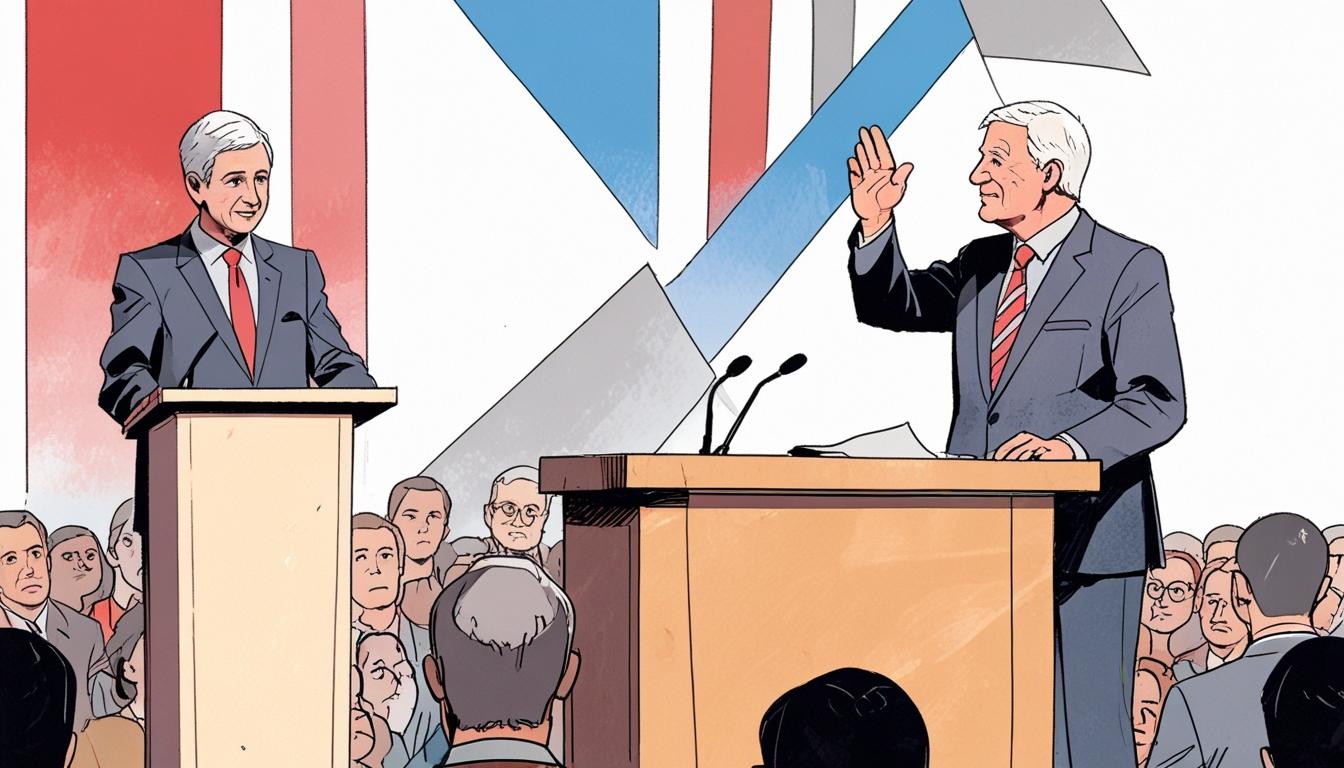Political Amnesia: Starmer and Badenoch's Unyielding Stance Amidst Electoral Turmoil
In the wake of significant upheaval in the recent local elections, one would expect Keir Starmer and Kemi Badenoch to engage in some much-needed reflection during Prime Minister's Questions. Instead, both leaders appeared obstinate, unwilling to confront the electorate's resounding message, a troubling sign that could further entrench the decline of the traditional two-party structure. Their apparent selective amnesia regarding the electoral gains of the reform-minded alternative—a remarkable victory that saw them win 677 council seats—suggests a curious denial of the shifting tides in British politics.
Starmer’s discomfort was palpable, his faltering words hinting at an underlying unease. The silence from Labour backbenchers spoke volumes about their growing desperation for direction and renewed faith. Contrary to what we might expect from leaders facing adversity, both Starmer and Badenoch opted for defiance, failing to grasp the severe implications of the electoral results.
Badenoch, seemingly oblivious to the winds of change, has persistently engaged Labour in confrontation, even as her own party wanes. Her previous critiques of Labour’s trade deal with India, warning it would swamp the market with non-contributing immigrants, suddenly seemed misplaced. At PMQs, she danced around self-reflection, neglecting to connect her past roles with current policy realities. This selective memory could explain her inability to recognize that similar arrangements are standard in Britain’s other trade negotiations.
Starmer's enthusiasm for the recent trade deal with India, touted as historic, felt misaligned given its projected GDP boost of a mere 0.1% by 2040. While he clings to this as a breakthrough of post-Brexit negotiations, it shows that he is increasingly out of touch with the electorate's pressing concerns. Kemi’s quips during PMQs primarily echoed outdated grievances rather than providing viable solutions for contemporary issues, revealing a detachment from the core needs of the public.
These local elections, viewed as a pivotal moment for Starmer's leadership, marked a decisive shift with substantial gains for the reform-centric party. Securing traditional Tory bastions like Staffordshire and Lincolnshire reflects not just a shift in voter loyalty but a potential upheaval in the existing political landscape. With the reform party now gaining ground in national opinion polls, the pressure on Starmer and Badenoch intensifies. Their methods must adapt swiftly, or risk being outmaneuvered.
Amidst the barrage of questions, it was Ed Davey of the Liberal Democrats who brought the local elections back into focus—illuminating the failures of both Starmer and Badenoch. The parliamentary chamber seemed disengaged from the electoral turmoil, with Kemi fixating on inconsequential issues rather than confronting the palpable threat from the reform party. This pronounced evasion of accountability hints at an existential crisis for traditional parties, highlighting their inability to resonate with a growing segment of the population weary of business-as-usual politics.
As the ramifications of the local elections settle in, their refusal to acknowledge recent missteps only exacerbates the gap between politicians and the electorate. The political landscape is undeniably evolving, potentially heralding a new era in British governance, one where established dichotomies are increasingly obsolete. In the coming weeks, the actions of Labour and the Conservatives will determine whether they can recalibrate their strategies or continue to languish in a cycle of denial—a political time warp of their own creation.
Source: Noah Wire Services
